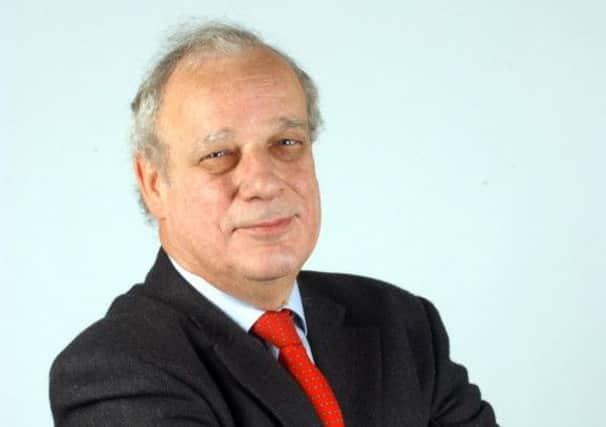Comment: New manager is no reason to desert a fund


It has been one of the most successful funds of the past decade and brilliantly managed, first by the legendary Anthony Bolton and more recently by Sanjeev Shah. Its long-run performance has made it a long-time favourite of independent financial advisers and it has grown to a massive £2.7 billion.
There are two great advantages of special situations funds – and two great drawbacks. The first advantage is the freedom to invest across sectors and geographies and in companies irrespective of activity or size. The second is they have the scope to take tactical advantage of market anomalies and mis-priced shares – there is no grand strategy to adhere to.
Advertisement
Hide AdAdvertisement
Hide AdThat should make them top choices for private investors who lack the time, knowledge and expertise to spot anomalies in the market and move swiftly to take advantage. This, surely, is the prime benefit of investing in the stock market via a managed fund – and the main justification for the fees.
But there are two potential drawbacks. The first is that performance can be volatile and uneven, and the second is that such funds can be overly dependent on the talents of one manager. When there is no overriding strategy or specialism, the fund’s appeal is largely down to the stock-picking talents of an individual.
That is why management change at a special situations fund excites particular attention – exactly what has happened in the past week at Fidelity Special Situations with the departure of Shah and his replacement by Alex Wright, currently manager of Fidelity’s Smaller Companies fund. This has sparked fears of a change on focus and thus an impact on performance. And no wonder there is apprehension – since Shah took over in 2008, he has achieved returns of more than 50 per cent, comfortably outperforming the FTSE All Share.
Change introduces uncertainty, and investors may be wary of staying with the fund during a period of transition, until the new manager proves himself. Not that Wright doesn’t boast an impressive record of his own. The Fidelity UK Smaller Companies fund (and more recently Fidelity Special Values fund) has performed strongly over the past three- and five-year periods.
But Wright’s success in the small-cap sphere has fuelled concerns of special situations investors that the composition and character of their fund may be at risk of change. Shah’s success has been largely achieved through deft management of large-cap FTSE 100 holdings.
There are also worries that, in having dual responsibility for both funds – at least for now – one or the other will suffer from a lack of focus. (Though that would be to belittle the analysts’ teams, critical in stock selection and timing, not to mention Wright’s own success and experience.)
Nevertheless, how can investors counter the risk of risk of under-performance during a transition? One obvious tactic would be to reduce the holding in Fidelity Special Situations and diversify into similar funds.
There is certainly no lack of alternative vehicles, from “opportunity” trusts to “recovery” funds. What is the difference between these and “special situations” funds? Very little, from the private investor point of view.
Advertisement
Hide AdAdvertisement
Hide AdJoshua Ausden, the redoubtable editor of FE Trustnet, asked Rob Morgan at Charles Stanley Direct to come up with alternatives – and he offered five. These include the top-performing £68.4 million JOH (JO Hambro) CM UK Dynamic fund. It is predominantly invested in FTSE 100 firms and has risen by 91 per cent since 2008.
He also singled out the Schroder Recovery and M&G Recovery funds. Schroder Recovery, managed by Nick Kirrage and Kevin Murphy, is heavily invested in mid-cap stocks and has more than doubled investors’ money since the duo took over in 2006.
M&G Recovery is a giant fund with a portfolio valued at £7.3bn. It has been a strong long-term performer but has suffered of late through being overweight in commodity-related companies. Others to consider are Cazenove UK Opportunities (now in the Schroders stable) managed by Julie Dean and the £10.8bn Invesco Perpetual Income managed by the celebrated Neil Woodford.
While the words “fleet” and “nimble” might not apply to such giant funds – and some may query whether individual stock selection can have much of an impact on funds of such a size – they have earned a reputation for good management and outstanding performance. They are well worth considering, but as a core holding, I would not drop Fidelity at this stage.